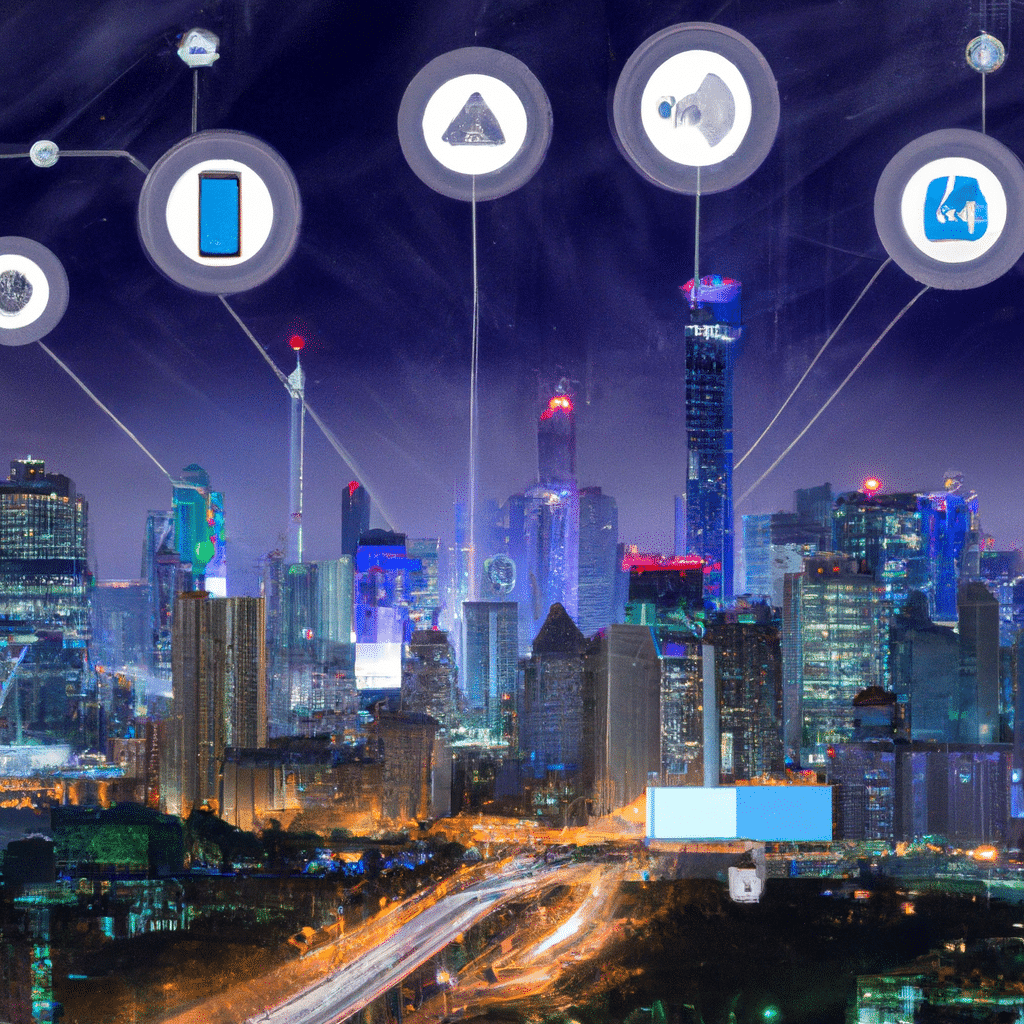The Potential of IoT in Smart Homes and Cities
The Internet of Things (IoT) is a revolutionary technology that has the potential to transform the way we live and interact with the world around us. One of the most exciting applications of IoT is in smart homes and cities. In this article, we will explore the potential of IoT in smart homes and cities, and how it can improve our daily lives.

What is IoT?
IoT refers to the interconnected network of devices that can communicate with each other and share data over the internet. These devices can range from smartphones and laptops to smartwatches, home appliances, and even cars. IoT devices are equipped with sensors that can collect and transmit data in real-time, allowing us to monitor and control various aspects of our lives.
IoT in Smart Homes
Smart homes are becoming increasingly popular, and IoT is a major reason for this. With IoT, we can connect all of our home devices and appliances, allowing us to control them remotely. For example, we can turn on the air conditioning or heating before we arrive home, or we can turn off the lights from our smartphone. We can also monitor our home’s energy usage and adjust it to save money on electricity bills.
IoT devices can also improve our home security. Smart cameras and door locks can be connected to our smartphones, allowing us to monitor our home’s security from anywhere. We can receive notifications if someone tries to break in, and we can even lock or unlock our doors remotely.
IoT in Smart Cities
IoT can also revolutionize the way we live in cities. Smart cities are designed to be more efficient, sustainable, and livable, and IoT plays a major role in achieving these goals. IoT sensors can collect data on traffic patterns, air quality, and energy usage, allowing city planners to make informed decisions on how to improve city infrastructure.
Smart traffic lights can adjust their timings based on real-time traffic data, reducing congestion and improving traffic flow. Smart waste management systems can optimize waste collection routes, reducing fuel consumption and emissions. Smart streetlights can adjust their brightness based on ambient light levels, reducing energy consumption and light pollution.
Challenges of IoT
While the potential of IoT in smart homes and cities is vast, there are also challenges that need to be addressed. One of the major challenges is data privacy and security. With so much data being collected and transmitted over the internet, it is essential to ensure that this data is secure and protected from cyber attacks.
Another challenge is the interoperability of IoT devices. Many IoT devices are proprietary, meaning that they only work with devices from the same manufacturer. This can lead to a fragmented IoT ecosystem, where devices are not compatible with each other and cannot communicate effectively.
Conclusion
IoT has the potential to transform the way we live in smart homes and cities. With IoT, we can control our home devices remotely, monitor our energy usage, and improve our home security. In smart cities, IoT can improve traffic flow, reduce waste, and make cities more livable and sustainable. While there are challenges that need to be addressed, the potential of IoT is too great to ignore. As we move towards a more connected future, IoT will continue to play a major role in shaping our daily lives.












